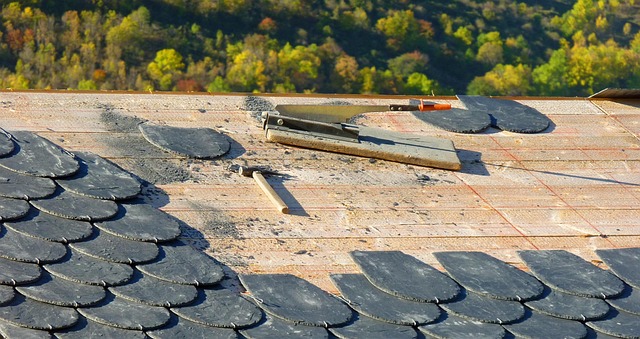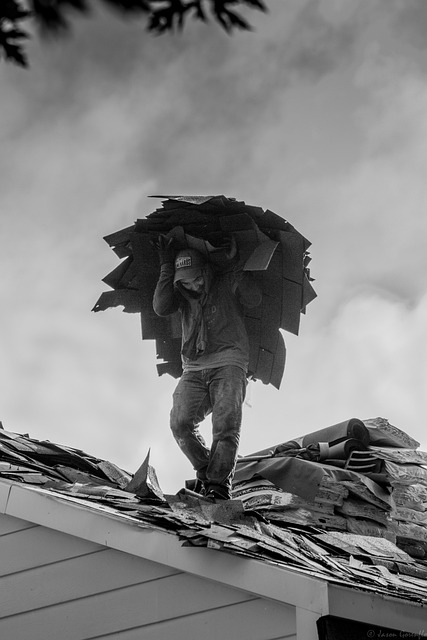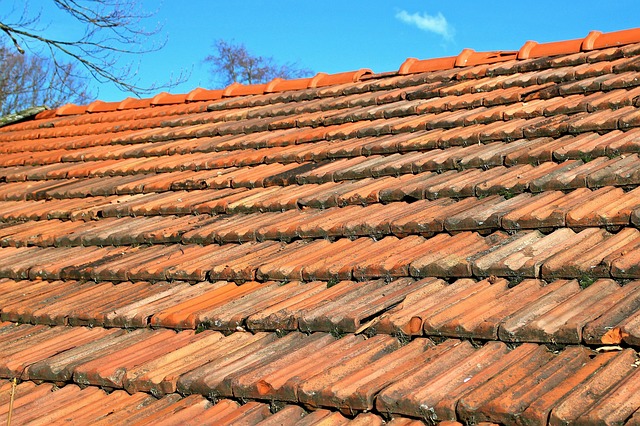Selecting the appropriate roofer involves understanding local climate demands. Different regions require specific roofing solutions: snow/heat resistance, moisture protection, or water-resistant materials. Urban areas need cool roof systems to combat heat islands. In hot/humid climates, reflective roofs and waterproof membranes are ideal for energy efficiency and longevity. Cooler climates favor weatherproof options like insulated roofs and asphalt shingles. Extreme weather zones require durable materials like metal or asphalt shingles for storm resistance. Consulting professionals ensures tailored, code-compliant solutions.
Selecting the right roofer involves understanding your local climate conditions. This guide explores material options tailored to diverse environments, from hot and humid to cooler climates, ensuring optimal performance and longevity. Learn how to choose weatherproof solutions for sustained protection against extreme weathers. Whether you’re in need of a new roof or seeking to replace an old one, this article provides valuable insights to help you make an informed decision when choosing a roofer.
- Understanding Local Climate Conditions for Roofer Selection
- Material Options for Hot and Humid Environments
- Choosing Weatherproof Solutions for Cooler Climates
- Longevity of Roofing Materials in Extreme Weathers
Understanding Local Climate Conditions for Roofer Selection

Understanding local climate conditions is paramount when selecting a roofer. Different regions experience unique weather patterns, from harsh winters to scorching summers and frequent storms. A roofer suited for a snowy area might not be the best choice for a tropical climate. For instance, in areas prone to heavy snowfall, roofing materials must withstand extreme cold and offer insulation to prevent ice damage. Conversely, in hot climates, reflectivity and breathable membranes can help manage heat transfer and reduce cooling costs.
Local environmental factors also play a role. In regions with high humidity, roofs need protection against mold and mildew. Materials like ceramic or slate tiles offer superior resistance to moisture absorption. Urban environments present specific challenges due to the heat island effect, making reflective or cool roof systems beneficial. By considering these climate-specific requirements, homeowners can ensure their chosen roofer provides optimal solutions tailored to their region’s unique conditions.
Material Options for Hot and Humid Environments

When selecting materials for roofers in hot and humid environments, it’s essential to consider options that can withstand extreme heat and high moisture levels. Reflective roofing materials, such as metal or cooled roofs, are ideal choices. These surfaces reflect sunlight, reducing heat absorption and minimizing interior space heating. This not only lowers energy costs but also extends the lifespan of the roof by decreasing strain from thermal expansion and contraction.
Additionally, choosing materials with superior water resistance is crucial. Asphalt shingles, for instance, come with enhanced underlayments and flashings to prevent water seepage. Vinyl or TPO (thermoplastic polyolefin) membranes offer excellent waterproof protection, making them suitable for regions with frequent rainfall and high humidity. Such options ensure the structural integrity of the roof while maintaining indoor comfort and minimizing maintenance needs over time.
Choosing Weatherproof Solutions for Cooler Climates

When considering materials for your roofing project in cooler climates, selecting weatherproof solutions is paramount. The last thing you want is for your roof to become a point of entry for cold winds and rain during those long winters. Look for high-quality roofing materials designed to withstand lower temperatures and strong wind conditions. Asphalt shingles, for instance, offer an affordable and reliable option known for their durability in varying weathers. They are easy to install and replace, making them a preferred choice for many homeowners in cooler regions.
Additionally, consider the benefits of insulated roofs, which can significantly improve energy efficiency. By providing an extra layer of protection against cold air leakage, these insulation systems help maintain a comfortable indoor temperature, reducing heating costs. Consult with professional roofers to determine the best options based on your specific climate and local building codes. Ensuring your roof is well-protected will contribute to a cozy home environment while preventing potential damage caused by harsh winter conditions.
Longevity of Roofing Materials in Extreme Weathers

The longevity of roofing materials is a critical factor, especially in regions prone to extreme weathers. When it comes to choosing roofing solutions for such areas, roofer professionals often recommend durable and resilient options that can withstand harsh conditions. In places with frequent storms, heavy rainfall, or high winds, the last thing homeowners want is a roof that becomes vulnerable to damage, leading to costly repairs or even replacement.
Therefore, when selecting roofing materials, it’s advisable to opt for products known for their strength and stability in challenging environments. For instance, asphalt shingles have long been a popular choice due to their affordability and ease of installation. They are designed to resist high winds and offer reasonable protection against extreme weather events. Alternatively, metal roofs are gaining popularity as they provide exceptional durability, reflecting intense sunlight, and offering excellent resistance to corrosion, making them a sustainable option for areas facing frequent natural disasters.
When selecting a roofer or roofing material, understanding your local climate conditions is paramount. Different environments demand specific solutions. For hot and humid areas, consider reflective materials that can manage heat and moisture effectively. Cooler climates require weatherproof options to withstand lower temperatures. Additionally, choosing long-lasting materials prepared for extreme weathers ensures the integrity of your roof for years to come. Remember, a knowledgeable roofer can guide you in making the best choice tailored to your region’s unique conditions.
